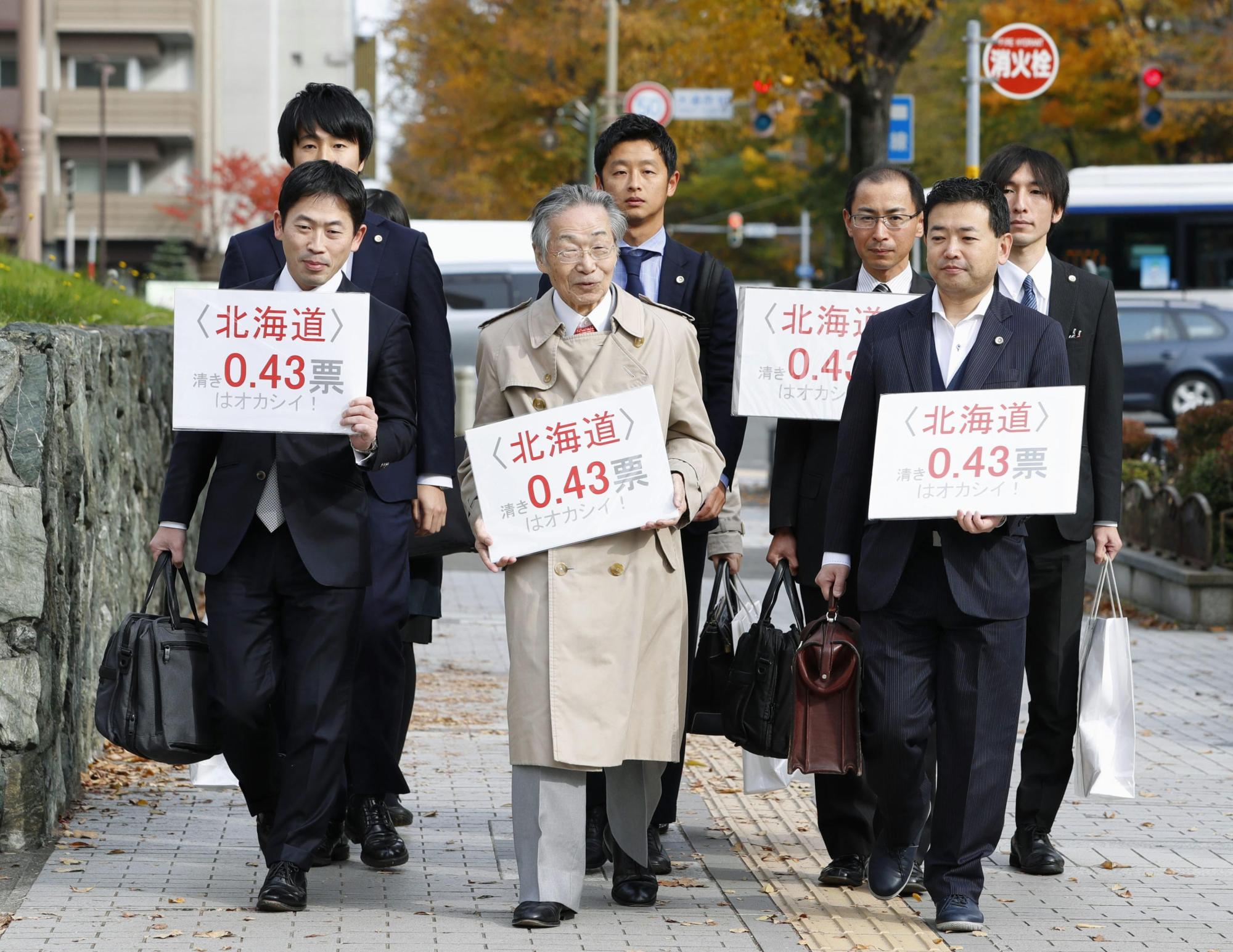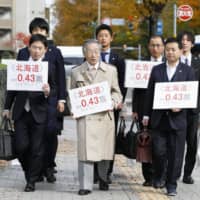The Sapporo High Court ruled Thursday that July's Upper House election was in a "state of unconstitutionality" due to a disparity in the value of a vote between the most and least-populated constituencies, with some being worth up to three times more.
But the court rejected the demand of a voter in the city that election results in the Hokkaido district be nullified.
"The imbalance in vote weight at the time of the election was at a level of significant inequality that raises issues of unconstitutionality," presiding Judge Kazuhiko Tomita said.
Thursday's ruling was the second related to the July 21 election after two groups of lawyers filed suits with 14 high courts and their branches across the country.
On Oct. 16, the Takamatsu High Court ruled the disparity was "in a state of unconstitutionality," but turned down the demand of three other plaintiffs to void results in three districts on the island of Shikoku.
In the July election, Miyagi Prefecture had the largest number of voters per seat, while Fukui Prefecture had the least, leaving their vote value disparity at 3.00. In Hokkaido, the vote weight gap was 2.33.
The overall vote disparity was reduced from 3.08 in the previous Upper House election in 2016, after the Diet passed legislation in 2018 to narrow such gaps by adding six seats to the chamber and redrawing constituencies.




